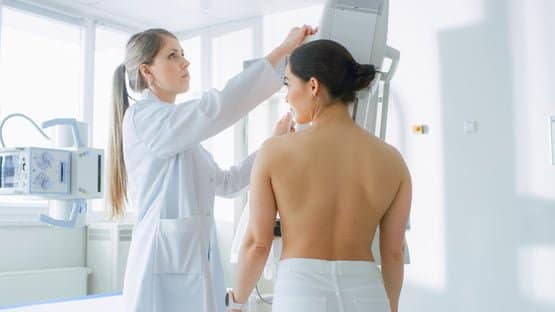IT needs ‘radical upgrade’ to improve cancer screening, interim report finds
- 30 May 2019

IT needs to be “radically upgraded” and online booking needs to be introduced to improve cancer screening programmes in the NHS, an interim report has found.
Professor Sir Mike Richards, the first NHS cancer director and former CQC chief inspector of hospitals, said funding new IT systems was an “urgent priority” and booking a screening appointment needs to be as “simple and convenient as booking a plane ticket online”.
Some of the IT systems used, particularly those used in breast and cervical screening, are little changed since 1988, the report found.
“Many of the systems in use are outdated and interoperability can be poor. At a local level, these deficiencies make it difficult to ensure that those eligible for screening are being called and recalled at the right intervals,” the report said.
Clinicians are faced with “considerable inefficiencies” to deliver safe screening services and communication with GP IT systems also needs to be improved.
Poor IT makes monitoring the safety and quality of screening programmes “difficult, if not impossible”, the report found, and it’s likely to get worse as the NHS moves towards more target screening techniques, which rely on “accurate and accessible” data.
Developing and funding new systems for GP registrations and cancer screening must be seen as an urgent priority.
Text message reminders and out of hours appointments should also be used to boost the uptake of breast, cervical and bowel cancer screening – the three national cancer screening programmes.
“Our screening programmes have led the world and save around 9,000 lives every year,” Professor Richards said.
“However, people live increasingly busy lives and we need to make having a screening appointment as simple and convenient as booking a plane ticket online.
“The technology exists in many other walks of life and by adopting it across the NHS we can help identify even more cancers early when they are easier to treat and save more lives.”
The NHS sent people over 11 million invitations for screening last year but the proportion of women participating in cervical screening is at the lowest for a decade.
Sara Hiom, Cancer Research UK’s director of early diagnosis, said: “The hard work of skilled and committed staff is being undermined in part by the crumbling infrastructure of the NHS, including inadequate IT systems.
“The Government must take urgent action to help the NHS remove barriers to screening and ensure that all those who want to take part can do so easily. Lives are potentially being lost as a consequence of doing nothing.”
Baroness Delyth Morgan, chief executive at Breast Cancer Care and Breast Cancer Now, said text message reminders and more flexible appointments could “make a real difference”.
“As has been made very clear, the breast screening programme is being held back by a lack of clear ownership and leadership, as well as by its ageing and complex IT systems. We now look forward to the review’s final recommendations to address these critical issues,” she added.
The next step of the review will focus on advances in technology to focus on solutions to make screening as effective as possible.
Professor Richards final report will be published in the summer, with further recommendations on:
- Future management, delivery and oversight of screening programmes
- The use of artificial intelligence to free up workforce pressure
- Increasing uptake of screening and making it more targeted in high risk communities
Why the review is necessary
Professor Richards was commissioned to conduct a review into the national screening programmes after it was found checks were not made to ensure IT systems could deliver a new specification or trial and algorithm, which led to the breast screening scandal in 2018.
At the time then-secretary for health and social care Jeremy Hunt said the issue was due to a ‘computer algorithm failure’, but a review later concluded that was not the case.
Cervical cancer screening has also been plagued by inadequate systems in recent years. Professional services firm Capita came under fire last year after it was revealed more than 48,000 women may not have received information about their cervical screening due to an administrative error.
Speaking at a PAC meeting in March, NHS chief executive Simon Stevens announced Capita was to be stripped of the cervical screening contract and the system would be bought back in-house as the health service had “not been satisfied” with the way Capita had handled the contract.
A damning report from the Public Accounts Committee, published earlier in May, found IT systems supporting the screening programmes were “woefully inadequate”.
The technology used to identify those who are eligible for screening has been unfit for purpose since 2011, the committee found, but has still not been replaced. It recommended NHSE and Public Health England, which manage screening programmes, develop a more integrated approach to IT systems.
Responding to the announcement earlier this year of Professor Richard’s review, charities called on NHS England to look at integrating screening invitations with GP records and greater investment in robust IT systems to improve dwindling attendance numbers.





1 Comments
I don’t know where Professor Sir Mike Richards buys his plane tickets but I always find the process a pain in the bum. One that usually ends up requiring several visits to the suppliers website to finally secure a seat on the plane.
Comments are closed.